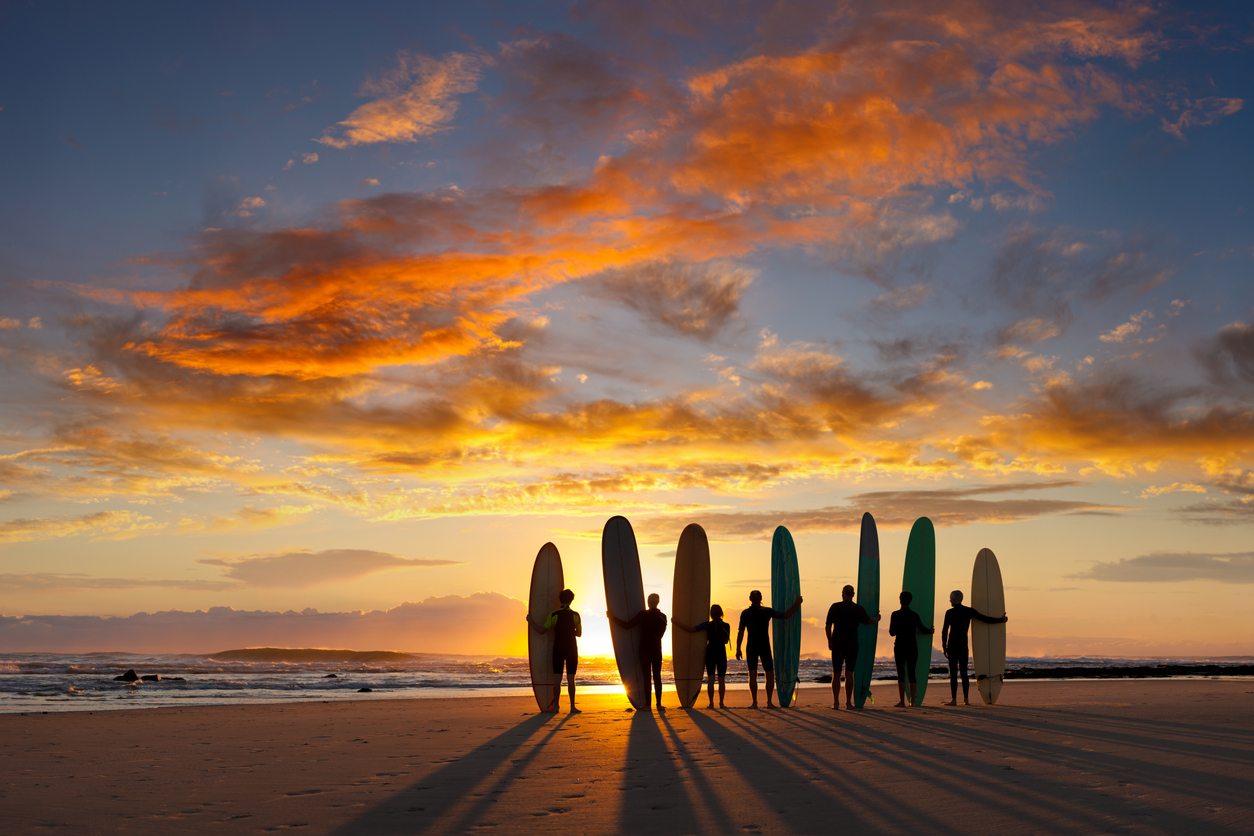

You can search for the surf school and their camp on our site, when you like the offering - click request booking. When you have requested your booking you'll be able to chat with the school on your booking page if you have any questions. You will receive an email notification if there is an update for your booking request. If the school confirms your booking request, you will need to pay a deposit to secure your booking, and the remaining amount will be paid upon your arrival.
Lessons, board, and wetsuit rental are included in the majority of camp options. We do not cover flight tickets, visas, etc. You'll have to arrange your travel yourself. Schools have a range of camp options which you can choose from on our website, some of them include accommodation, some don't. Airport transfer is not included usually. Check the camp description and you'll see all the details.
Usually, no, as soon as the school has confirmed the booking and you are happy with what they offer you'll need to pay a deposit amount only. Afterward, you'll pay the remainder directly to the school when you arrive. There are a small number of schools that request full payment upfront and you'll see if that is the case during your booking.
That depends, in general - no, it is not. But we understand that plans can change and we will try our best to return your deposit if you cancel your booking early. Contact our support or send us a direct message on our social media and we will work on your case.
Talk to us - email us or send us a message on our social media. We do not work 24h a day usually but will do our best to look into your case promptly.
You are not expected to be a professional athlete or fitness instructor. But keep in mind that surfing is a physical activity and requires some effort. You'll be fine if you have some physical activity in your life, like going to a gym or cycling or running occasionally.
Any activity in life involves a certain amount of risk. The same goes for surfing, it depends on what exactly you're doing, like which conditions you surf on, what kind of beaches, etc. Beginners and intermediate-level surfers usually do not go for crazy waves and the school will cancel the class if it is unsafe. Most likely your classes will be in shallow water and on small waves when you are just starting with surfing. Instructors will show you how to behave safely in the water and they will be around you during surfing.
There is no need to be an Olympic swimmer. You must not be afraid of water and be able to float on the surface. You'll be comfortable in most cases if you can swim 25m pool. When you are surfing you have a surfboard that floats, also quite often you have a wetsuit which gives you some additional buoyancy. Most likely you'll do surfing classes in shallow waters where you can stand when you are a beginner. Together with that, you are not alone during the class and your surf instructors will assist if you need it.
This is not likely. The surfboard is attached to your leg by a leash, so it always stays close to you even if you fall from it in the water.
Talk to us on our social media accounts or send us an email and we will be happy to help. Check our contacts page for details.